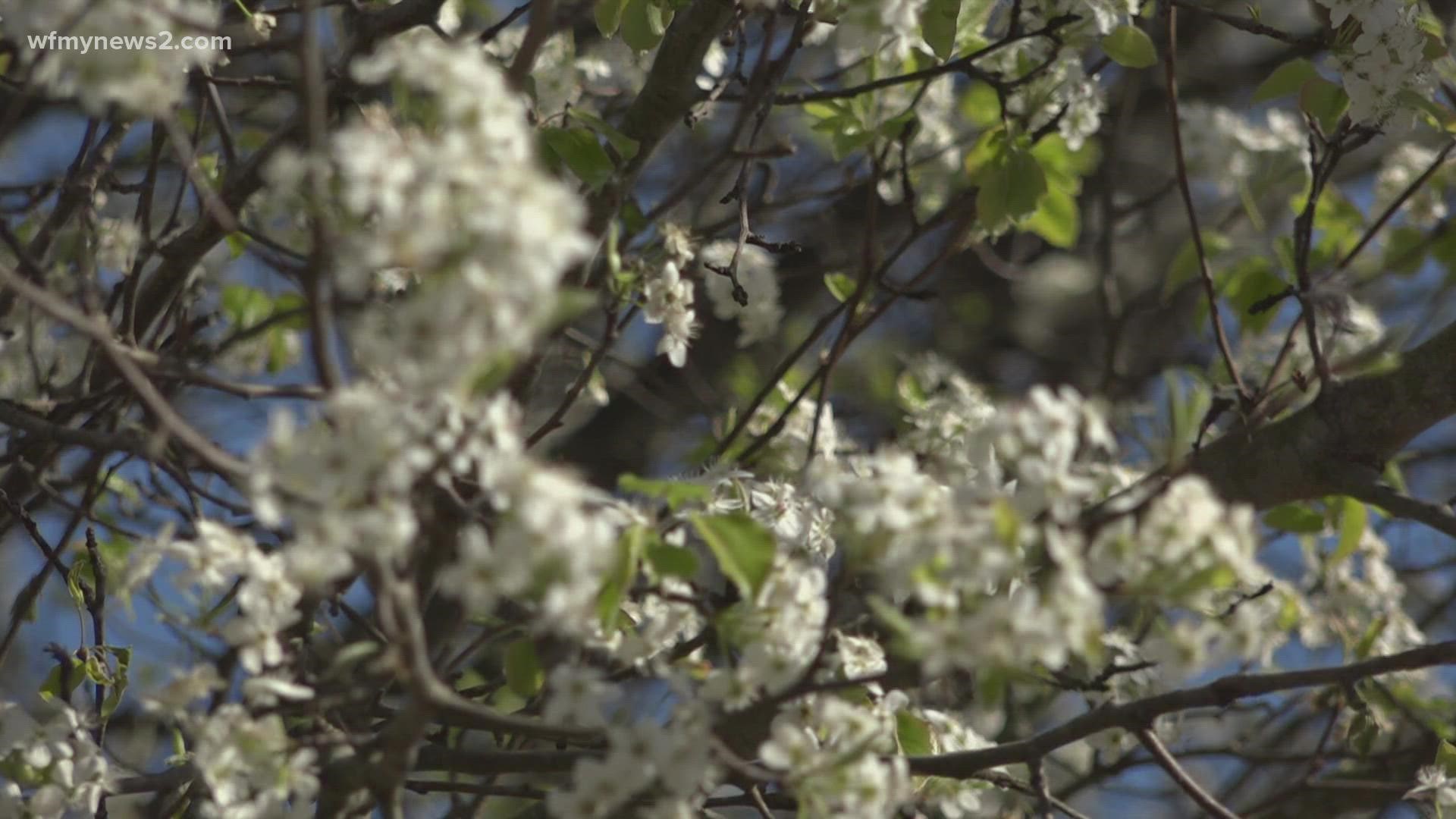GREENSBORO, N.C. — Many people look forward to the blooms of spring, but North Carolina State University wants to see less of a particular white-flowering tree.
You might be familiar with the Bradford Pear - or that unpleasant smell the flowers are known for - but that's just the beginning of the tree's downfall.
Forestry experts said they're not native to North Carolina and they're spreading.
"It crossbreeds with other trees in the area," Taylor Jones said. "It takes away resources in a space for native trees and causes problems with wildlife."
Jones is the Consumer Horticulture Extension Agent for Guilford County. The state extension and other agencies are offering five free native trees to replace Bradford Pears.
It's called the NC Bradford Pear Bounty program, and the first event will be held in Greensboro next month.
Those interested in exchanging the trees must pre-register online and is responsible for removing their pear trees on their own.
Ron Lewis removed the Bradford Pears in his backyard several years ago after storms tore them down.
"In the wintertime, it just split and it went in the street," Lewis said. "It cost me money to have them removed. If the trees are maintained and shaped properly, they are beautiful trees but if not, they become an eyesore."
Jones said the trees are known to be brittle.
Registration for the bounty program is currently on pause due to high the number of people who signed up.
"We were planning on giving away 200-250 trees. In less than 24 hours, we had registration for 390 trees," Kelly Oten said. "We are so thrilled to be overwhelmed with interest in this program!"
Oten is an Assistant Professor of Forestry and Environmental Resources at NCSU.
There are bans on planting and selling Bradford Pears in other states. North Carolina does not, but the hope is to discourage more from popping up.
"We're not going to eradicate the trees entirely but we'd love to see less and less of them," Jones said.
The event will be held on April 23 from 9 a.m. to noon at the UNCG Park & Ride Lot.

